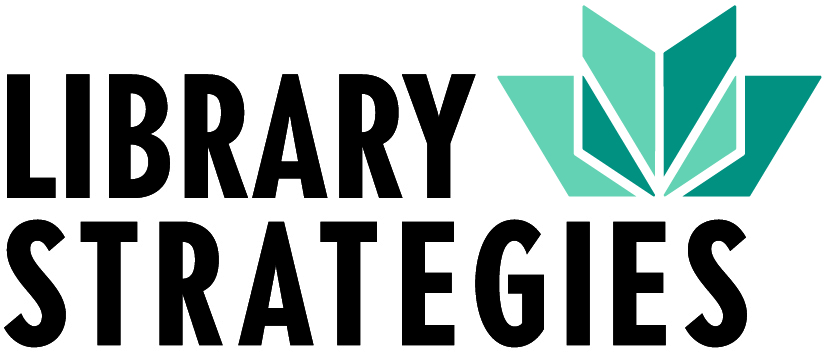How We Operate: Virtual Planning Edition.

A year ago, when we thought we would be using virtual meetings and events as stop-gaps for a time, we did not consider just how vital they’d become to the way we do business as an organization. Of course, we had “webinars” like most places operating in the 21st century. We had the ability to video conference, but it was not our primary mode of operation.
COVID forced Library Strategies, like many other organizations, to lean into digital delivery to a greater degree and in new ways. It prompted us to reassess some long-held assumptions about virtual meetings and events. After a few months of improvisation and experimentation, Library Strategies came to the inescapable conclusion that digital delivery can be an affordable, flexible, and above all effective means of bringing our expertise (and tailored advice) to libraries and their stalwart support organization, as well as maintaining our relationship with local partner libraries through program delivery.
Affordable: Library Strategies works across the country. Our rates are competitive (if we do say so ourselves), but there are always travel costs attendant with bringing out-of-state consultants into your library. In this new pandemic paradigm, we have successfully migrated project meetings, interviews, and fact-finding work to the digital space. This cuts down considerably on travel costs. Depending on your unique situation, a facility walk-through can be accomplished successfully through Zoom, Google Hangouts, or any of the dozen other videoconferencing tools broadly available. Naturally, there remain cases and places where a consultant’s physical presence is critical to the process and outcomes of a Library Strategies project. However, distance is no longer the barrier it might have been, and we are nothing, if not…
Flexible: Pre-pandemic, our strategic planning process was typically anchored by a half-day community retreat or forum. The intent was to bring residents representing a broad cross-section of a community together to talk over the role and future of their library. To accommodate a range of schedules, those sessions almost always took place on a Saturday. While the best option, even a Saturday morning is not workable for all schedules. By contrast, the pandemic has forced us to reconceptualize that half-day forum as a series of moderated focus groups delivered over Zoom. Library Strategies usually holds 3-4 per client (adjustable based on community size and other considerations). This means, by extension, that we can offer multiple time slots during a day and a mix of weekday and weekend options. It should also be noted that small groups are often a better forum for those who might be reticent to speak in a group of 40. The quality of the data generated in these focus groups has been consistent with that received at in-person forums.
Effective: Flexibility and affordability would mean little if, at the end of the day, the feasibility study, strategic plan, or staffing assessment you’re left with isn’t tailored to you and actionable in nature. In a word, effective! We can say with confidence that the final product does not need to suffer if the process underpinning it is largely virtual/remote in nature.
As one of the primary program-runners for The Friends of the Saint Paul Public Library, I would be remiss if I did not also mention the effectiveness of delivering library programming via Zoom. Imagine 2019. There are 67 people in a library meeting space, and author has dropped wisdom on the room. Sixty-seven people absorbed it, and it disappeared into the ether. While that ephemeral quality has its own charm, and there is certainly something real about being in a room with other people, being able to revisit the moment that makes an attendee do a mental-double take, is of real value.
And, from an organizational perspective, recorded webinars enjoy a healthy afterlife in the wild of the Internet. We generally double our “live” views after posting an event on YouTube. However, I like to think the real moment of value comes from moments like: “My 96-year-old mother is mentioned in this book, and she would love to attend, but was unable to. Is there going to be a recording?” Being able to answer in the affirmative to a request like that just feels good. If an excellent library is part of what makes for quality of life in a community, surely this is outreach at its finest.
It should not take something like a pandemic to make an organization realize there were sustainability benefits, cost-savings for partner libraries, and equitable outreach opportunities to making full use of the technology at our disposal. But a pandemic is what it took, and we have become a more well-rounded, flexible organization in the last year. We think you can do it too, but, of course, we’ll help.

